Related Research Articles
The Social Democratic Party is a centre-left political party in Estonia. It is currently led by Lauri Läänemets. The party was formerly known as the Moderate People's Party. The SDE has been a member of the Party of European Socialists since 16 May 2003 and was a member of the Socialist International from November 1990 to 2017. It is orientated towards the principles of social-democracy, and it supports Estonia's membership in the European Union. From April 2023, the party has been a junior coalition partner in the third Kallas government.

The Riigikogu is the unicameral parliament of Estonia. In addition to approving legislation, the Parliament appoints high officials, including the prime minister and chief justice of the Supreme Court, and elects the president. Among its other tasks, the Riigikogu also ratifies significant foreign treaties that impose military and proprietary obligations and bring about changes in law, as well as approves the budget presented by the government as law, and monitors the executive power.
Estonia elects a legislature on the national level. The Riigikogu has 101 members, elected for a four-year term by proportional representation. A head of state – the president – is elected for a five-year term by parliament or an electoral college. Locally, Estonia elects local government councils, which vary in size. Election law states the minimum size of a council depending on the size of municipality. Local government councils are elected by proportional representation too.
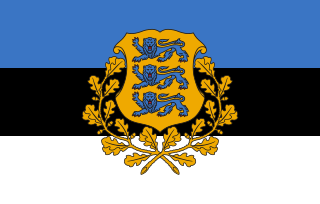
The president of the Republic of Estonia is the head of state of the Republic of Estonia. The current president is Alar Karis, elected by Parliament on 31 August 2021, replacing Kersti Kaljulaid.
The Russian Party in Estonia was a minor political party in Estonia.

The Farmers' Assemblies was a conservative political party in Estonia. Led by Konstantin Päts, it was one of the ruling parties during most of the interwar period.
The Estonian Socialist Workers' Party was a political party in Estonia.

Electoral district no. 1 is one of the 12 multi-member electoral districts of the Riigikogu, the national legislature of Estonia. The electoral district was established in 1995 following the re-organisation of the electoral districts in Tallinn. It is conterminous with the districts of Haabersti, Kristiine and Põhja-Tallinn in Tallinn. The district currently elects 10 of the 101 members of the Riigikogu using the open party-list proportional representation electoral system. At the 2019 parliamentary election it had 85,469 registered electors.
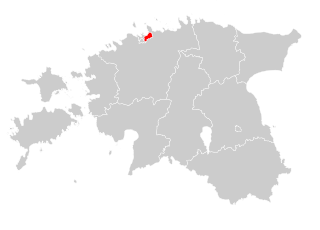
Electoral district no. 2 is one of the 12 multi-member electoral districts of the Riigikogu, the national legislature of Estonia. The electoral district was established in 1995 following the re-organisation of the electoral districts in Tallinn. It is conterminous with the districts of Kesklinn, Lasnamäe and Pirita in Tallinn. The district currently elects 13 of the 101 members of the Riigikogu using the open party-list proportional representation electoral system. At the 2019 parliamentary election it had 111,135 registered electors.
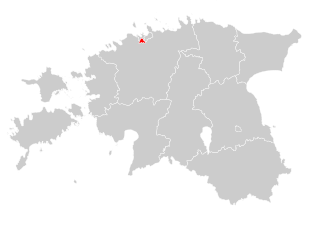
Electoral district no. 3 is one of the 12 multi-member electoral districts of the Riigikogu, the national legislature of Estonia. The electoral district was established in 1995 following the re-organisation of the electoral districts in Tallinn. It is conterminous with the districts of Mustamäe and Nõmme in Tallinn. The district currently elects eight of the 101 members of the Riigikogu using the open party-list proportional representation electoral system. At the 2019 parliamentary election it had 71,882 registered electors.

Electoral district no. 4 is one of the 12 multi-member electoral districts of the Riigikogu, the national legislature of Estonia. The district was established as electoral district no. 5 in 1992 when the Riigikogu was re-established following Estonia's independence from the Soviet Union. It was renamed electoral district no. 4 in 1995 following the re-organisation of electoral districts. It is conterminous with the counties of Harju and Rapla. The district currently elects 15 of the 101 members of the Riigikogu using the open party-list proportional representation electoral system. At the 2019 parliamentary election it had 133,437 registered electors.
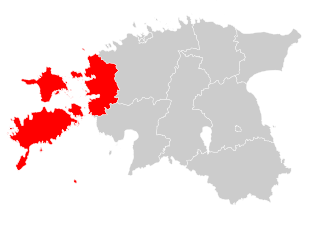
Electoral district no. 5 is one of the 12 multi-member electoral districts of the Riigikogu, the national legislature of Estonia. The district was established as electoral district no. 6 in 1992 when the Riigikogu was re-established following Estonia's independence from the Soviet Union. It was renamed electoral district no. 5 in 1995 following the re-organisation of electoral districts. It is conterminous with the counties of Hiiu, Lääne and Saare. The district currently elects six of the 101 members of the Riigikogu using the open party-list proportional representation electoral system. At the 2019 parliamentary election it had 51,093 registered electors.
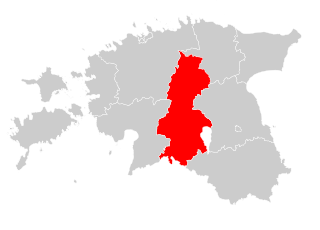
Electoral district no. 8 is one of the 12 multi-member electoral districts of the Riigikogu, the national legislature of Estonia. The district was established as electoral district no. 7 in 1995 following the re-organisation of electoral districts. It was renamed electoral district no. 8 in 2003 following another re-organisation of electoral districts. It is conterminous with the counties of Järva and Viljandi. The district currently elects seven of the 101 members of the Riigikogu using the open party-list proportional representation electoral system. At the 2019 parliamentary election it had 61,657 registered electors.

Electoral district no. 9 is one of the 12 multi-member electoral districts of the Riigikogu, the national legislature of Estonia. The district was established as electoral district no. 8 in 1995 following the re-organisation of electoral districts. It was renamed electoral district no. 9 in 2003 following another re-organisation of electoral districts. It is conterminous with the counties of Jõgeva and Tartu. The district currently elects seven of the 101 members of the Riigikogu using the open party-list proportional representation electoral system. At the 2019 parliamentary election it had 65,898 registered electors.
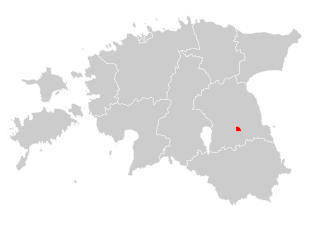
Electoral district no. 10 is one of the 12 multi-member electoral districts of the Riigikogu, the national legislature of Estonia. The district was established as electoral district no. 9 in 1995 following the re-organisation of electoral districts. It was renamed electoral district no. 10 in 2003 following another re-organisation of electoral districts. It is conterminous with the municipality of Tartu. The district currently elects eight of the 101 members of the Riigikogu using the open party-list proportional representation electoral system. At the 2019 parliamentary election it had 67,525 registered electors.
An indirect election took place in Estonia on 30 and 31 August 2021 to elect the president of Estonia, who is the country's head of state. The Riigikogu — the Parliament of Estonia — elected Alar Karis to serve in the office and he was sworn in as the 6th president on 11 October 2021. The incumbent, Kersti Kaljulaid, was eligible to seek reelection to a second, and final, term but failed to gain the endorsement of at least 21 MPs, which is required in order for a candidate to register, as she was outspoken against some of the policies of the government, who thus denied her support.

Electoral district no. 11 is one of the 12 multi-member electoral districts of the Riigikogu, the national legislature of Estonia. The district was established in 1992 when the Riigikogu was re-established following Estonia's independence from the Soviet Union. It was renamed electoral district no. 10 in 1995 following the re-organisation of electoral districts but reverted to electoral district no. 11 in 2003. It is conterminous with the counties of Põlva, Valga and Võru. The district currently elects eight of the 101 members of the Riigikogu using the open party-list proportional representation electoral system. At the 2019 parliamentary election it had 70,706 registered electors.

Electoral district no. 12 is one of the 12 multi-member electoral districts of the Riigikogu, the national legislature of Estonia. The district was established in 1992 when the Riigikogu was re-established following Estonia's independence from the Soviet Union. It was renamed electoral district no. 11 in 1995 following the re-organisation of electoral districts but reverted to electoral district no. 12 in 2003. It is conterminous with the county of Pärnu. The district currently elects seven of the 101 members of the Riigikogu using the open party-list proportional representation electoral system. At the 2019 parliamentary election it had 66,852 registered electors.
Electoral district no. 6 was one of the multi-member electoral districts of the Riigikogu, the national legislature of Estonia. The district was established in 1995 following the re-organisation of electoral districts. It was abolished in 2003. It was conterminous with the counties of Ida-Viru and Lääne-Viru.
VIII Riigikogu was the eighth legislature of the Estonian Parliament (Riigikogu). The legislature was elected after 1995 election.
References
- ↑ "Riigikogu valimised 1995". Vabariigi Valimiskomisjon. Retrieved 11 March 2015.
- ↑ Nohlen, D & Stöver, P (2010) Elections in Europe: A data handbook, p574 ISBN 978-3-8329-5609-7